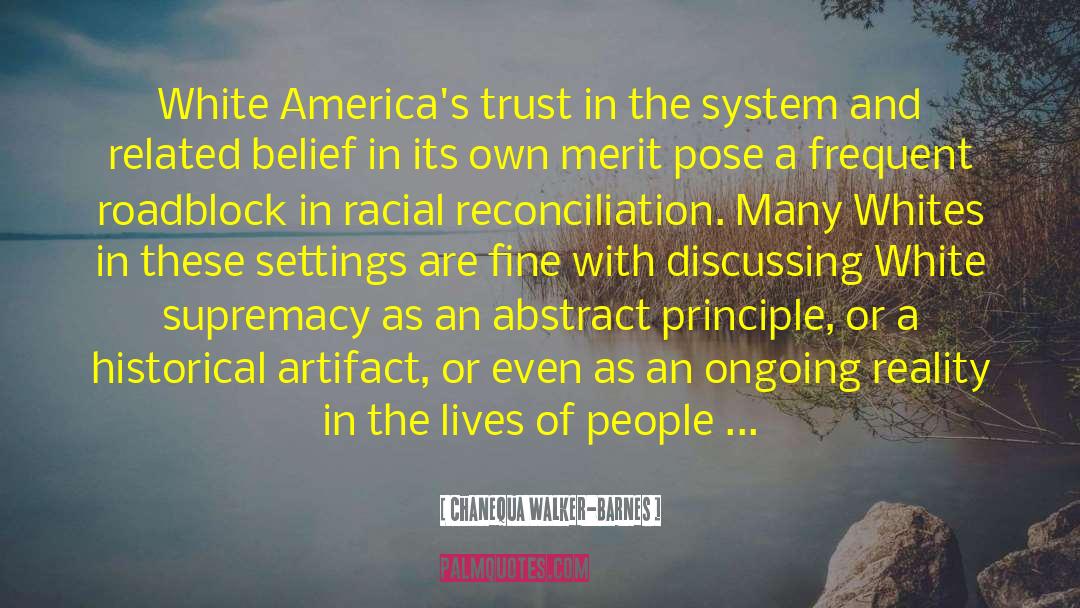Chanequa Walker-Barnes Famous Quotes
Reading Chanequa Walker-Barnes quotes, download and share images of famous quotes by Chanequa Walker-Barnes. Righ click to see or save pictures of Chanequa Walker-Barnes quotes that you can use as your wallpaper for free.
To put it bluntly, much of what passes for racial reconciliation among Christians is merely an exercise in making sure Black men and other men of color have the same access to male privilege as their White counterparts do.
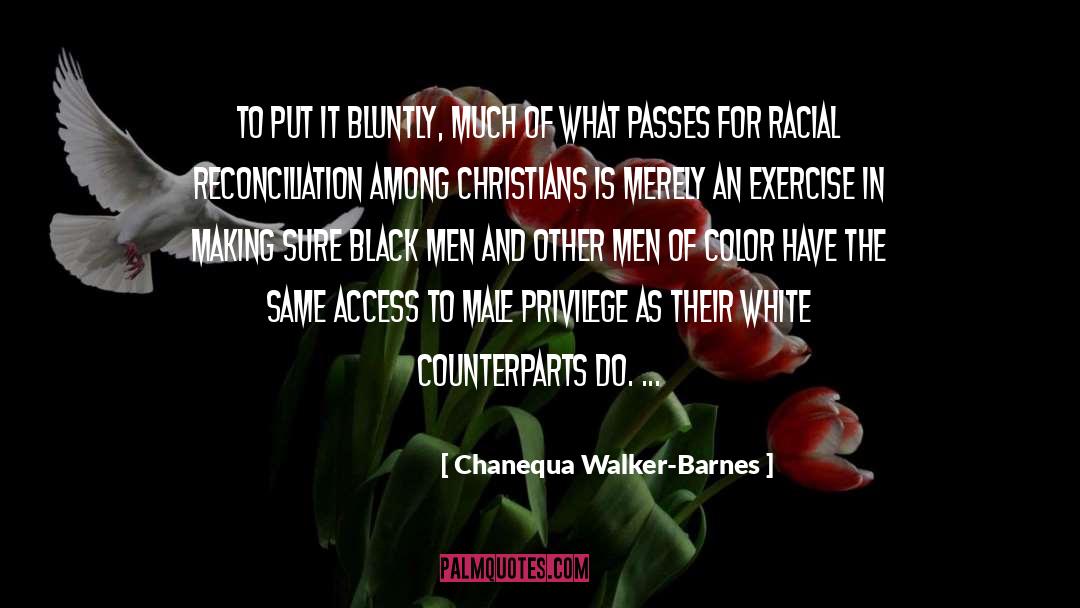
Only after the rise of the Nazi party and the atrocities of the Holocaust was racial science widely rejected. Subsequently, many earlier proponents of racial science began to retract or modify the claims of their previous work, and by the end of World War II, scholarly interest in race had shifted from "proving" the science of race to challenging its ontology and examining the root of racial prejudice. Then, in the 1960s, as the civil rights movement drew widespread visibility to southern racism, many Whites attempted to distance themselves from the image of the "mean racist" by abandoning any mention of race altogether. This was especially the case with respect to whiteness. Having thoroughly identified whiteness with White supremacists, many Whites simply stopped thinking of themselves as White. They crafted a color-blind racial ideology that reinforced the idea that noticing, acknowledging, or talking about race was undesirable. Likewise, noticing, acknowledging, or talking about racism was also undesirable.
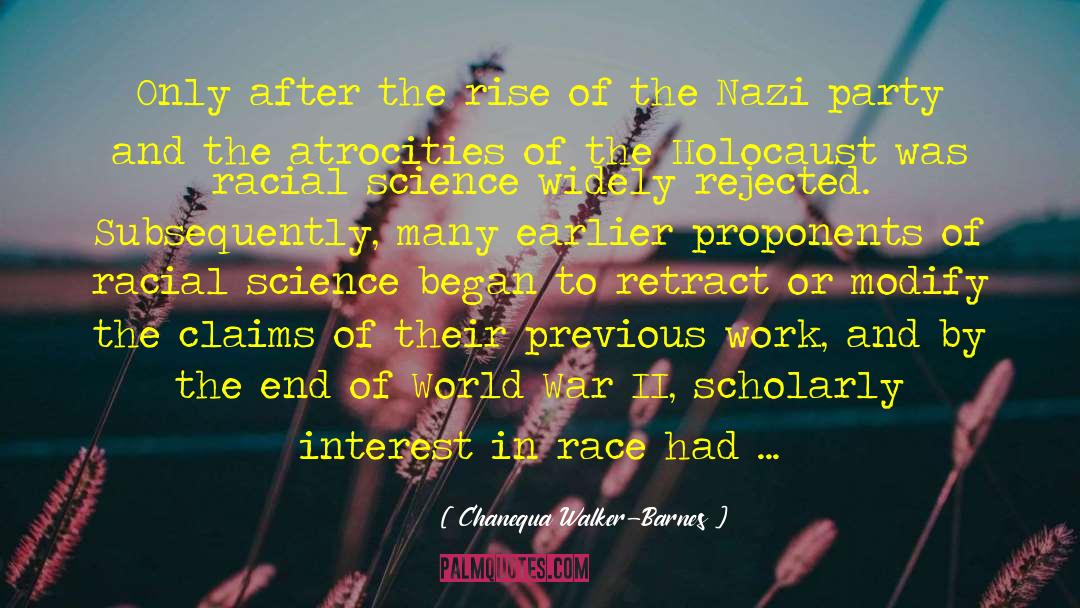
For Christians engaged in racial reconciliation, in particular, solidarity is based upon our shared identity as followers of Christ who are bound together through our baptismal covenant. Thus, our solidarity must be evinced by what Duane Bidwell identifies as the characteristics of "helpful and healthful covenant partnerships": (1) relational justice (the sharing of power, opportunity, and rewards); (2) equal regard (an ethic of interdependent mutuality in which partners empathize with and seek the flourishing of one another); (3) mutual empowerment (the capacity to influence and be influenced by others without domination or losing one's identity); (4) respect for embodiment (honoring the body of the other, including their lived realities, as a reliable and trustworthy informant about them, the world, and the Divine); (5) and resistance to colonization (working to prevent and dismantle the internalization of harmful cultural beliefs).
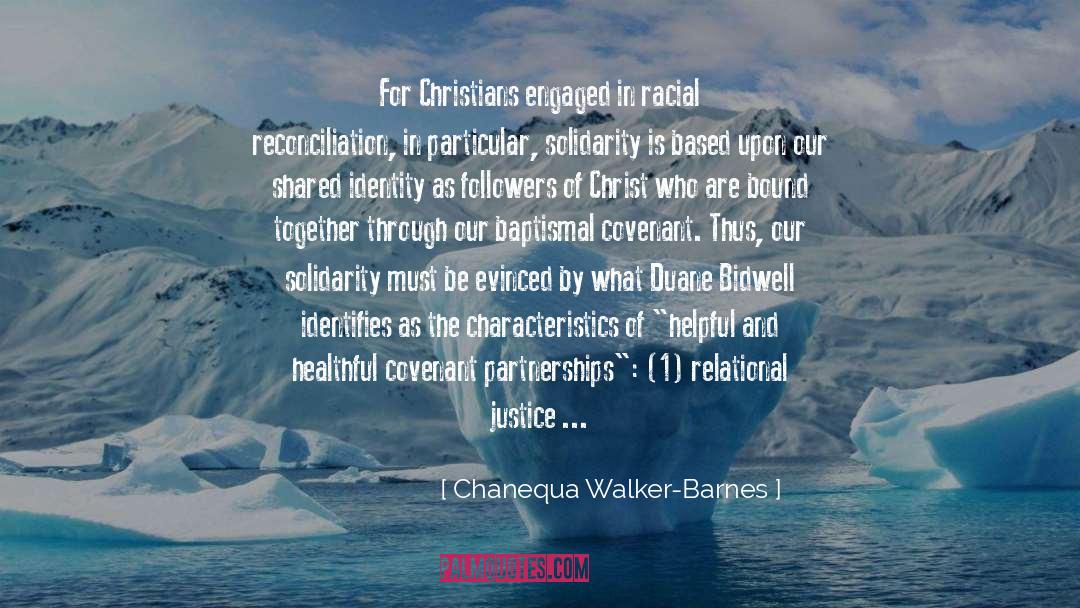
Indeed, a consequence of color-blind racial ideology is that, because it implies that race is a bad thing, it also implies that those who identify as raced - that is, people of color - are thus morally inferior to those who do not - that is, White people. Thus it reinforces the supremacy of whiteness even as it renders whiteness invisible.
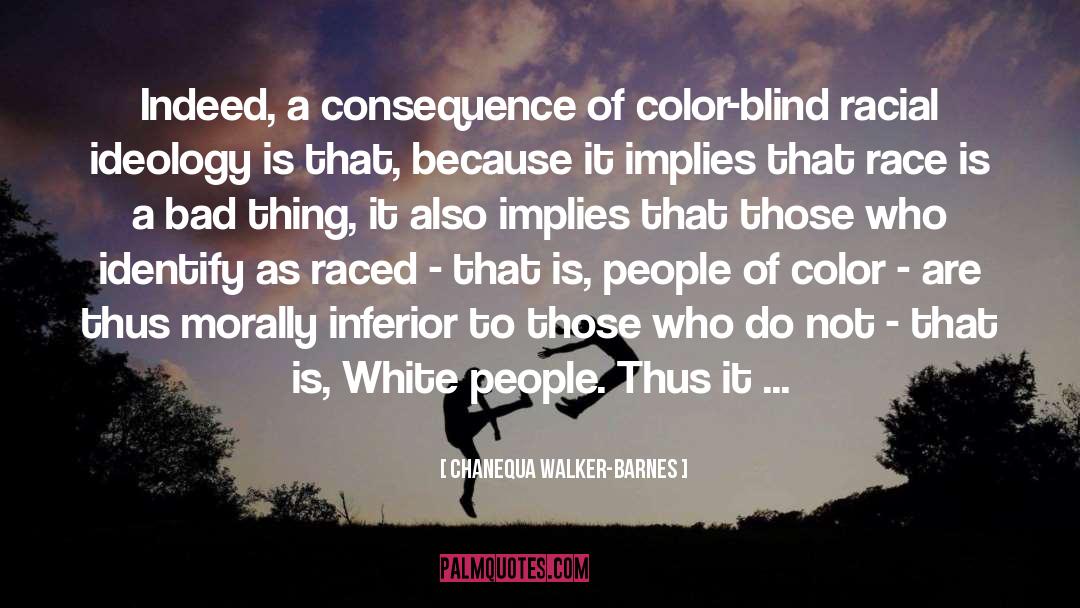
The modern church encourages African-American women to keep others' vineyards, while neglecting their own, in two ways: by venerating Black women's performance of strength and depending upon women's labor and financial support to maintain the church, without providing equal opportunity for Black women to exercise their gifts in ministerial leadership; and by distorting Scripture in a way that encourages suffering and self-sacrifice among Black women.
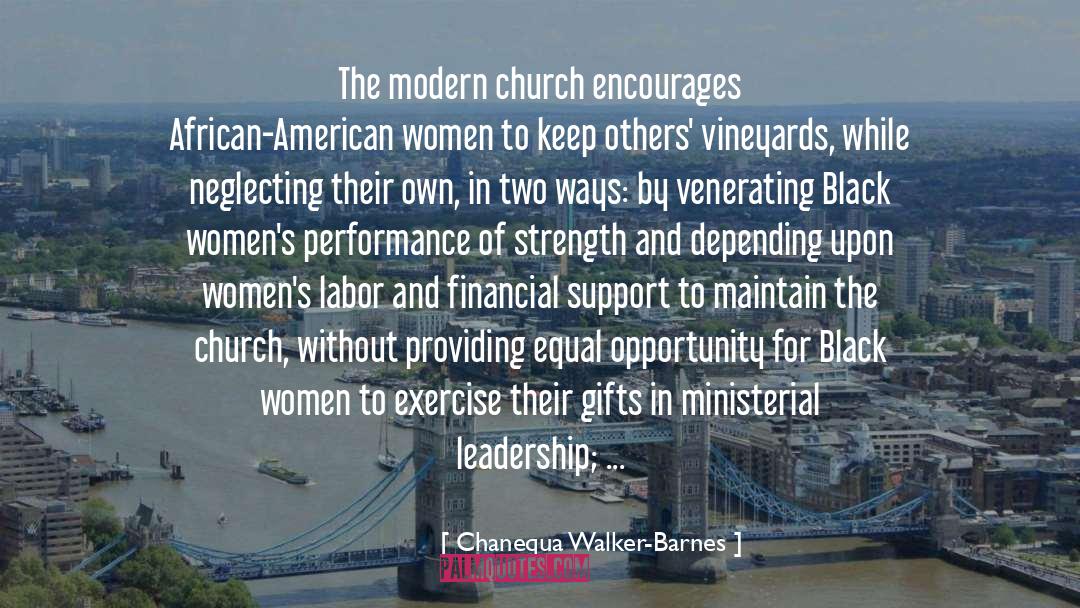
People often view racism as social division based on race; that is, racism occurs when people align and separate themselves based on their affinity for people of the same race and their hostility toward people of other races. A popular way to put this has been to define racism as "prejudice plus power," that is, it is having the personal power to act on one's feelings about racial difference. This understanding reduces racism to the level of affect and interpersonal relationships: racism occurs because of how we as individuals feel about other ethnic groups; reconciliation occurs when we eliminate our negative feelings about other racial groups and establish relationships across race.
But racism is not about our feelings. Nor is it about the attitudes, intentions, or behavior of individuals. Racism is an interlocking system of oppression that is designed to promote and maintain White supremacy, the notion that White people - including their bodies, aesthetics, beliefs, values, customs, and culture - are inherently superior to all other races and therefore should wield dominion over the rest of creation, including other people groups, the animal kingdom, and the earth itself.
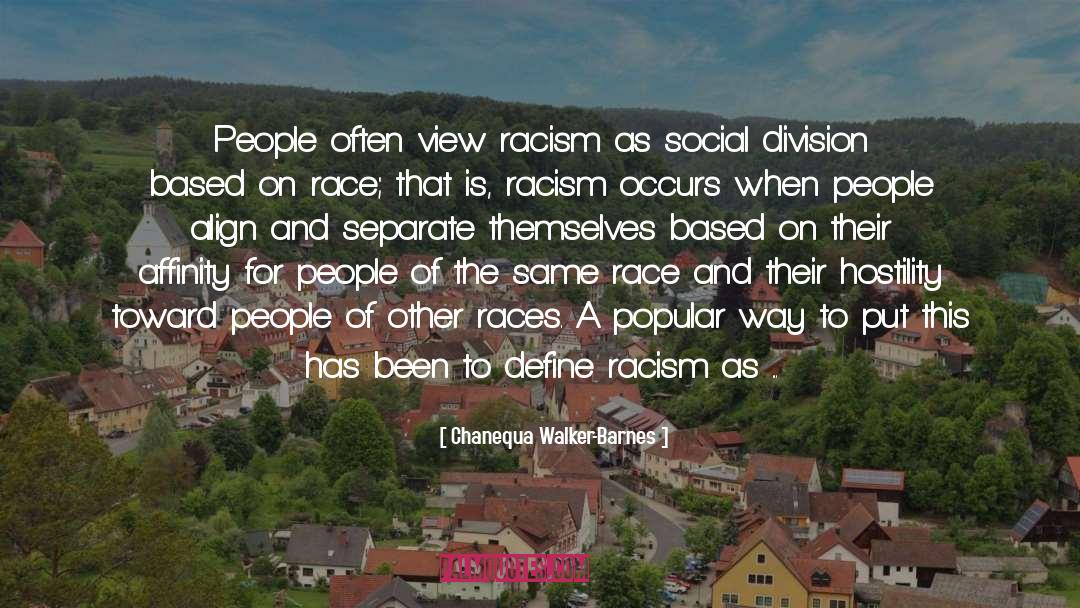
White supremacy means that, more often than not, US structures and systems - and the authorities who govern them - were designed to protect White interests and to maintain White dominance in all areas of society. Thus, White Americans are more likely to trust the system because they have been able to count on the fact that it will work in their favor. Moreover, in the cases where the system does not work in their favor, they could assume that it was due to some factor other than their race.
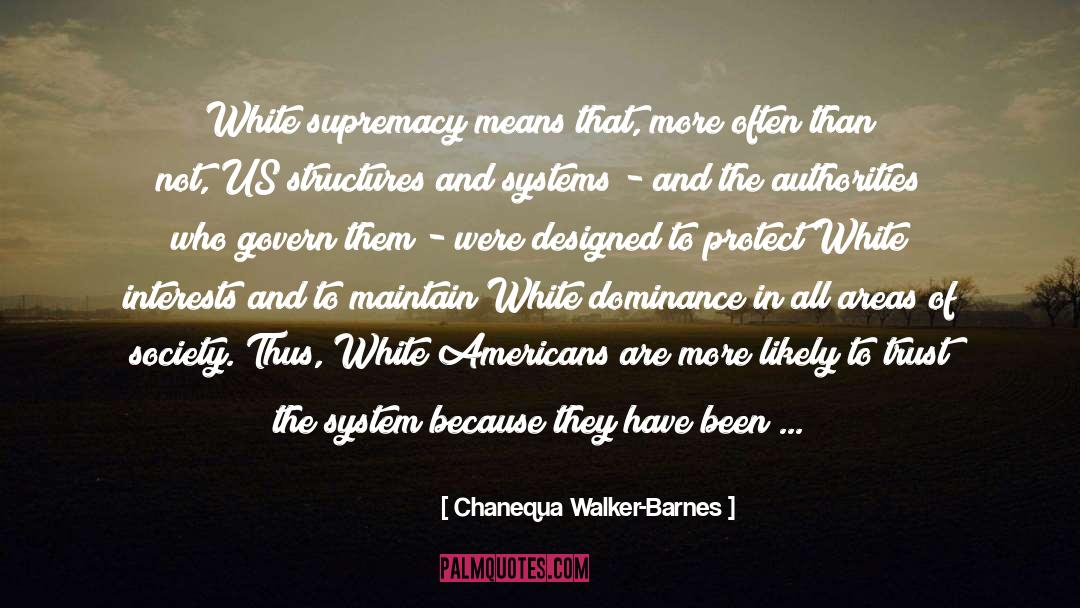
White America's trust in the system and related belief in its own merit pose a frequent roadblock in racial reconciliation. Many Whites in these settings are fine with discussing White supremacy as an abstract principle, or a historical artifact, or even as an ongoing reality in the lives of people of color. But they are highly resistant to examining their own privilege or to the suggestion that any element of their success may be the product of racial privilege.
